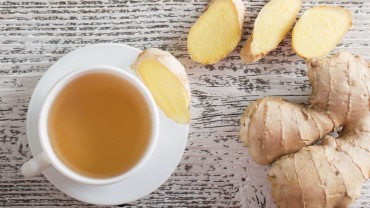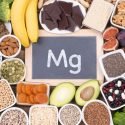22 Evidence-Based Benefits of Ginkgo Biloba
As one of the oldest living species of tree and a time-honored herbal treatment, gingko biloba is now a very popular remedy for many people.
However, you may not know everything that this plant has to offer, including how it can improve your mind and mood, treat your body and enhance your health and well-being.
If you would like to get the most from your herbal therapy, including improving your mental health, you will learn more about the amazing health benefits of gingko biloba in the following section.
What is Gingko Biloba?
Known by most as simply ginkgo, gingko biloba comes from a tree that is native to China and other parts of Asia.
The scientific name is Salisburia adiantifolia, and in some cultures, Gingko is referred to as Maidenhair.
While there used to be many different species of this tree, today there is just one remaining.
Gingko has been used in Chinese Traditional Medicine (TCM) for thousands of years.
It may be one of the very first herbal remedies ever used.
You can now find Gingko in a wide variety of forms, including tablets, teas, leaf extracts, capsules, and powders.
They can all be used to treat many different conditions and ailments (1).
The standardized extracts taken from the Gingko Biloba tree have scientific names, in order to help us identify and measure them properly.
These names include EGb761 and GBE (2).
Gingko is best known as a powerful antioxidant that has been in commercial use in tonics and herbal treatments since the early 1900s.
While the Chinese have used the dried plant in herbal medicine for thousands of years, today’s modern study of Gingko focuses primarily on the use of liquid plant extracts, which are standardized and contains specific amounts of the plant’s beneficial compounds, which include flavonoids and terpenoids, potent antioxidants.
In TCM, Gingko is used to treat respiratory problems, help with issues related to memory and cognition and stimulate overall good health and a positive outlook.
Most Chinese believe it is an anti-aging herb that can help you live longer and healthier.
We now know that Gingko works to improve vascular dilation and enhance blood flow.
This means that it can provide benefits for both the heart and the brain.
The most powerful effects of Gingko are felt in the areas of cognition, mood and mental performance.
It is, therefore, no wonder that it is often recognized as an herbal treatment for diseases related to aging, such as Alzheimer’s.
In the section below, we will explore what medical research has to say about the advantages and benefits of taking Gingko Biloba.
You will see that there are many good reasons to include this herb as a part of your health routine.
Gingko Biloba’s Health Benefits
Boosts Cognition
Perhaps some of the most significant benefits you will enjoy from taking Gingko regularly, are for your brain health and function.
For example, the gingko biloba extract can help to enhance the supply of oxygen to the brain, while protecting it during sensitive operations, such as cardiopulmonary bypass surgery (3).
It has been shown to be helpful for treating multiple sclerosis (4), by improving the symptoms of fatigue.
Gingko also has many benefits for healthy patients.
It has been shown to help enhance memory and free recall in some people (5), while also improving cognitive processes and functions in older adults with no other illnesses (6).
Taking Gingko helps to improve short-term memory (7) and processing (8), protecting against neuronal death and improving blood flow (9), and repairing the metabolism of neurons (10).
For the treatment and prevention of dementia, including Alzheimer’s, Gingko Biloba offers many protections.
For elderly patients, Gingko can improve mental efficiency, which can be especially helpful during the early stages of neurodegeneration (11).
The compounds found in this herb can help to delay the progression of dementia, giving sufferers longer before they require care from others (12).
Gingko works by exciting neurons within the hippocampus, improving memory impairment and leading to greater neuronal firing (13).
Most people who have dementia can tolerate a dose of up to 240 milligrams per day of Gingko Biloba extract, with no adverse effects (14).
When combined with other supplements, especially lycopene and omega-3 fatty acids, Gingko Biloba can help to significantly improve the cognitive function of older people (15).
For other neurodegenerative diseases and conditions that affect the brain, this herb also helps.
For those with Parkinson’s diseases, Gingko extract can protect the neurons that are often damaged by excess dopamine that is common with this disease (16).
Taking Gingko can improve the brain blood flow of patients with Vascular Cognitive Impairment (17).
Gingko can help to reduce headaches caused by tension (18), while also reversing damage to memory and cognition caused by fluoride (19) and aluminum exposure (20).
It can even help sufferers recover from a stroke (21).
Provides Antioxidant Protection
The actions of Gingko Biloba on the brain and body come from its high concentration of antioxidants, which prevent cellular damage from oxidative stress (22).
By increasing the activity of both superoxide dismutase and catalase in the hippocampus, Gingko reduces the impact of free radicals on the red blood cells (23).
An extract of Gingko Biloba could be used to reduce the damage caused by elevated body temperatures, such as from a fever (24).
As an antioxidant, this herb can also prevent an increase in oxidative stress damage caused by aging (25).
Lowers Inflammation
The compounds in Gingko Biloba could help to reduce specific types of inflammation, including those which lead to high glucose levels and certain metabolic diseases.
It has been shown to help reduce inflammation in patients undergoing dialysis (26), and it reduces the inflammation associated with diabetic vascular complications (27).
In cell models, an extract of Gingko was shown to inhibit the gene production activity of the TNF alpha-induced NF-kB gene, which contributes to the inflammatory response (28).
It can also help to reduce pain caused by inflammation (29).
Treats Mental Health Disorders
Another one of Gingko’s great benefits is its ability to help regulate mood, improve mental health symptoms and provide effective treatment for many mental health disorders.
Gingko extract is able to reduce anxiety in many patients (30), as well as reduce feelings of depression in the elderly (31).
The effects of this herbal supplement are most noticeable in those with dementia, but it has also been shown to reduce anxiety activity in animal trials (32).
For those with specific psychiatric conditions, ginkgo may be able to help, too.
In children with ADHD, for example, an extract of this plant was able to improve symptoms and regulate electrical activity in the brain (33).
Some patients with schizophrenia also showed improvements in their movements (34).
For those with chronic schizophrenia, regular treatment with Gingko can help to improve all symptoms, including reducing negative symptoms significantly (35).
Gingko is also effective as a mood regulator.
In one study, otherwise healthy patients reported improved mood and attention (36), while also improving mood and cognition in postmenopausal women in another study (37).
Reduces Stress
Gingko may also help you to regulate your stress response and cope better with this negative experience.
When you are stressed, your body releases stress hormones (mainly cortisol), which can raise blood pressure and cause other negative side effects, including increased oxidative stress damage.
Gingko extract has been shown to reduce levels of cortisol, lower blood pressure (38) and improve the oxidative stress response (39).
Having fewer negative effects of stress can help you cope with a wide range of illnesses and conditions.
Keeps Your Heart Healthy
Extracts of Gingko Biloba can help to keep your heart healthy and improve blood flow.
Increased blood flow can lead to improvements in endothelium-dependent vasodilatory capacity (40) while also lowering the risk of heart disease and other cardiac complications (41).
In animal trials, this herb was shown to protect against blood flow restriction, which is known as ischemia (42).
For patients with previous heart problems, including those who have undergone aortocoronary bypass surgery, Gingko was able to reduce the formation of atherosclerotic nanoplaque.
This is probably a result of the high amounts of antioxidants which combat oxidative stress in the heart (43).
The improved vasodilation caused by Gingko can also help other parts of the body that are dependent on vascular health, including the eyes.
Those taking Gingko experienced a positive impact on open-angle glaucoma (44).
Gingko is also shown to act as a natural anticoagulant, which can keep blood flowing smoothly and prevent the formation of clots and arterial plaque.
In some patients, this effect was noticeable and included lowering the risk of coagulation, without raising the risk of bleeding (45).
For patients with certain types of microcirculation problems, Gingko could be a safe complement or alternative treatment (46).
It is also effective in blocking platelet aggregation in both whole and platelet-rich blood, leading to its possible use as an antiplatelet therapy (47).
Enhances Eye Health
Keeping your eyes healthy is important to maintaining your vision over your lifetime.
Gingko Biloba may be able to help.
By improving blood flow to the optic nerve, this herbal supplement could help to treat and even prevent glaucoma (48).
Those with glaucoma could see improvement in visual field damage that already exists (49) and protects the retinal ganglia cells (50).
By increasing the blood flow in the ophthalmic artery, Gingko could help to treat many different disorders associated with the optic nerve and help repair several types of ocular disease (51).
Improves Your Immune System
By protecting you from bacteria and viruses, Gingko can also help strengthen your immune system and help you prevent infections.
It has been shown to resist even drug-resistant strains (52), as well as several common pathogens (53).
Gingko inhibits the growth of E. coli, Staphylococcus aureus, Salmonella and listeria (54).
In the future, adding Gingko Biloba to certain foods could protect users from food-borne illnesses (55).
Keeps Your Skin Healthy
Adding Gingko to skincare products helps skin stay hydrated longer and improves texture and appearance.
Cosmetics containing this herb increase smoothness, while reducing wrinkles and roughness (56).
It also significantly increases the overall moisturization (57).
Could be Used to Treat Cancer
In addition to promoting overall good health, Gingko Biloba may even be able to protect you from cancer.
Its extract can be used to inhibit cancer cell growth, to help increase the effectiveness of cancer treatments and can help to reduce the influence of free radicals on cancer cells (58).
Taking Gingko Biloba while undergoing cancer treatment can help enhance the effects of radiation therapy, while also helping to reduce the size of tumors.
Those taking Gingko during radiation noted less weight loss (59) and it can help prevent some of the negative side effects associated with chemotherapy (60).
It has been shown to help in the treatment of stomach (61), breast (62), and liver cancer (63).
Helps You Breathe Easier
For patients with chronic respiratory disorders, such as asthma, chronic obstructive pulmonary disease (COPD), or emphysema, ginkgo biloba may be able to offer some relief.
Gingko has long been used to treat respiratory problems in TCM, and now we better understand the many benefits this herb has for your lungs.
In some studies, using Gingko was seen to improve the conventional treatments for COPD and asthma (64), while additional studies show this herbal extract can decrease inflammation in the airway (65).
Relieving airway constriction and infiltration could be used to complement other treatments.
Gingko was used to treat patients with various types of pulmonary interstitial fibrosis (66), and it could even be used as a future anti-asthmatic treatment (67).
Supports Liver Health
As an antioxidant, Gingko Biloba can help to protect your liver’s health and function.
By blocking the formation of scar tissue due to non-alcoholic fatty liver (68), Gingko extract protects your liver from oxidative-induced stress brought on by disease (69).
It is worth noting that Gingko can harm the liver when taken at extremely high doses.
Helps Treat Diabetes
Taking Gingko Biloba can help you in the treatment of diabetes, as well as prevent complications from this chronic disease.
When given to patients with early diabetic kidney problems, this extract regulated lipid levels and improved overall kidney function (70).
It also reduces insulin-mediated glucose metabolism, as well as overall blood sugar levels in those with Type 2 diabetes (71).
It has been shown to effectively reduce blood sugar levels in animal trials (72), and it can help prevent late diabetic complications, including ischemic heart injury (73).
Protects Your DNA
Gingko Biloba is so effective that it can even help to repair your DNA.
It has been shown to help repair broken and damaged chromosomes, even when damaged by radioactive waste (74).
This could be a helpful treatment in addressing the damage induced by treatments for certain diseases, such as Grave’s disease, which affects the thyroid gland (75).
Ensures Function of Hearing
Some patients can experience sudden and unexplained hearing loss.
This is known as idiopathic sudden sensorineural hearing loss or ISSHL.
In some patients, Gingko Biloba was able to improve the recovery of patients’ hearing and restore normal function (76).
The mechanism of action could be that Gingko is able to protect the cochlear hair cells (77).
Gingko can also improve symptoms of tinnitus when combined with other therapies (78, 79).
These results have been confirmed in both clinical and animal trials.
It not only reduces ringing but also improves behavioral manifestations that result from this chronic condition (80).
Can Help You Move Easier
Certain conditions can cause pain, inflammation, and difficulty moving, including reducing your ability to walk without pain.
One of these conditions, known as intermittent claudication, can be improved when treated with ginkgo biloba.
Patients with intermittent claudication who took Gingko noted less pain, improved walking distances and improvements in their overall movement (81).
These same benefits extended to those with peripheral arterial occlusive disease or PAOD (82).
Helps Treat Headaches
Gingko Biloba has been used in the treatment of headaches and migraine headaches for thousands of years.
Depending on the cause of your headache, Gingko’s unique properties and compounds may be able to effectively alleviate the source of your pain.
For example, if your trouble is due to stress, Gingko is known to lower that stress and help to ease your headache.
Tension headaches and other forms of this condition are often due to restricted blood vessels in the skull.
Because gingko biloba is a vasodilator that increases blood flow and circulation, it can also effectively address this common cause of headache pain.
Gingko can also increase the effectiveness of some forms of headache treatment, possibly due to its high antioxidant concentration.
For those with regular headaches or migraines due to inflammation, stress, or other sources, gingko biloba should be added to your headache treatment routine.
Additional Benefits of Gingko Biloba
- Gingko Biloba could be helpful in treating sexual dysfunction that is related to the use of antidepressants. It was found to significantly help some patients, whose antidepressant drugs cause some sort of sexual dysfunction (83).
- Metabolic syndrome leads to many unpleasant and unwanted symptoms, and Gingko can help with many of them. It has been shown to improve inflammation, reduce insulin resistance and lower the overall risk of death for certain patients (84).
- For women with PMS, ginkgo can help to reduce the severity of these symptoms (85).
- By reducing muscle fatigue, this plant could help to improve athletic performance. When combined with other supplements, Gingko improved oxygen consumption, enhanced testosterone concentration and reduced overtraining fatigue (86).
- For mountain climbers, taking Gingko regularly can help to prevent or reduce the effects of acute mountain sickness that is common during quick ascents (87).
Precautions
In one case, a patient regularly taking Gingko Biloba for 18 months developed a spontaneous intracerebral hemorrhage, but this effect has not been noted in other research on this herb (88).
In some cases, taking Gingko has resulted in spontaneous bleeding.
Taking this herb can interfere with blood thinning medications, such as anticoagulants (89).
If you have trouble with blood clots, platelets, or take blood thinners, you should talk with your doctor before taking this supplement.
Dosage Information
The most effective way to take GBE is regularly.
While there is no regulated dosage for this herb, analysis of the data from clinical trials indicates that as much as 240 milligrams per day are needed to see effective results for patients with dementia (90).
Most healthy people take between 120 and 600 milligrams (91).
Taking any supplement can cause digestive problems.
Gingko Biloba’s most common side effects also include dizziness, headache, upset stomach, and constipation.
Some people can have an allergic reaction to this plant (92).
You should never consume fresh Gingko seeds, as they are poisonous (93).
Conclusion
The use of Gingko Biloba for thousands of years by Traditional Chinese Medicine should provide sufficient evidence of its effectiveness.
However, today’s scientific research is very clear in its support of this herbal treatment.
The extract of the Gingko Biloba tree is effective for treating many different mental and physical health problems.
It has very few adverse effects, making it a safe option for nearly everyone to use.
If you would like to improve your mood, lower your stress, protect your brain or keep your heart healthy, you cannot go wrong with this herbal supplement.
Gingko’s effects extend much farther, including helping keep your eyes and ears healthy, keeping your diabetes in check and protecting you against cancer.
Taking Gingko Biloba has been shown to help reduce stress, while also keeping your liver and kidneys healthy.
If you suffer from Parkinson’s, Alzheimer’s, or dementia, then adding this herb to your daily diet could also improve other, conventional treatments for your diseases.
Still not sure? Try some Gingko for yourself today.
FDA Compliance
The information on this website has not been evaluated by the Food & Drug Administration or any other medical body. We do not aim to diagnose, treat, cure or prevent any illness or disease. Information is shared for educational purposes only. You must consult your doctor before acting on any content on this website, especially if you are pregnant, nursing, taking medication, or have a medical condition.
HOW WOULD YOU RATE THIS ARTICLE?





